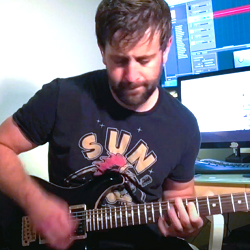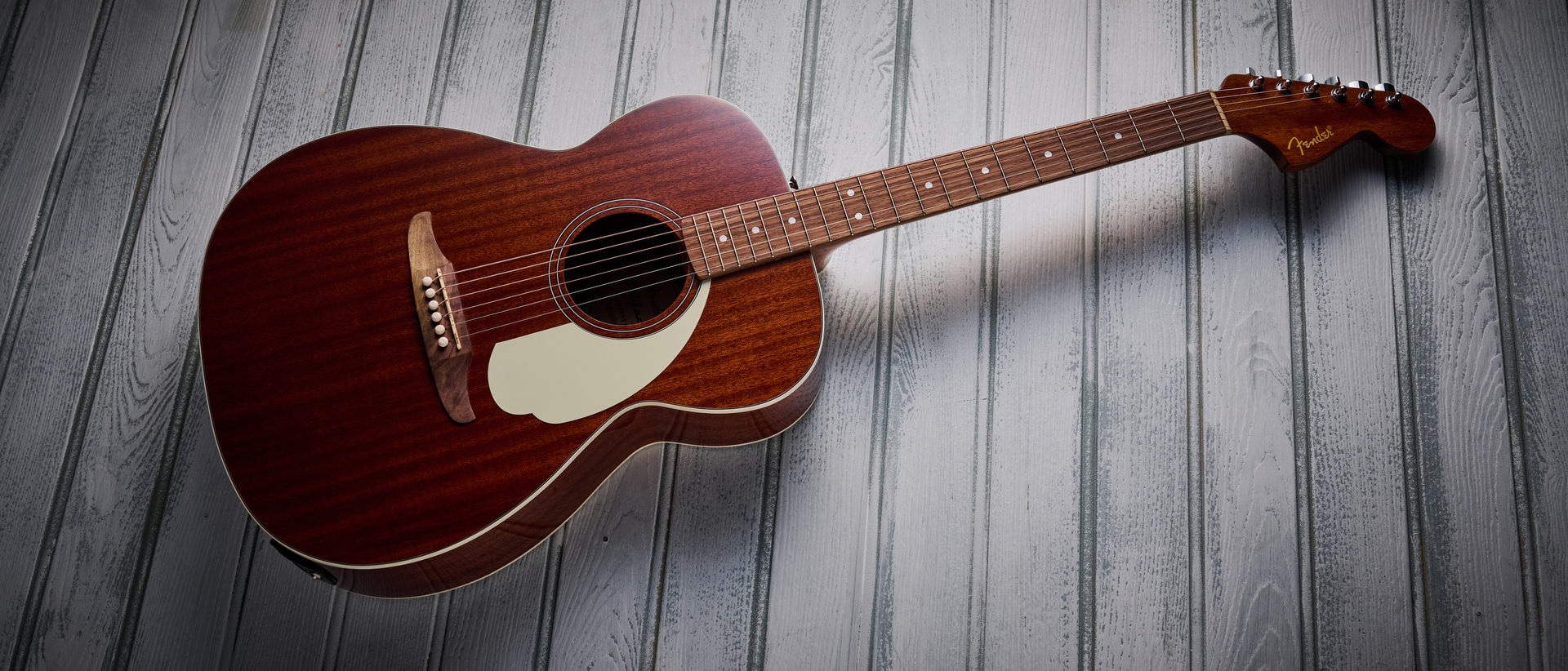Guitar Chalk Sessions: Building Control from Basic Pentatonic Patterns
Use patterns derived from pentatonic scales to build fretboard control and dexterity.
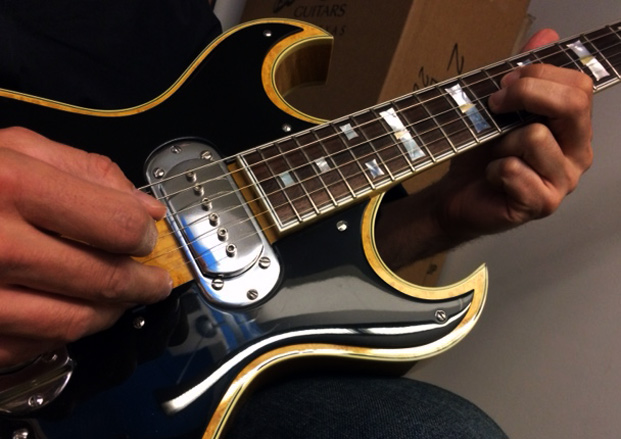
If you’re a guitar player who’s steeped in American jazz, blues, folk or rock, you’re using pentatonic scales pretty much all the time. They’re extremely common and one of the foundational elements of Western music.
When you’re learning guitar, it’s one of the first concepts you should be covering after your basic chords, even if you don’t plan on focusing your effort into a lead guitar role.
So I think it’s safe to assume (whether you realize it or not) that you’re pretty familiar with the pentatonic “sound” and the modes that create those sounds.
If that’s the case, I believe the next step is to use those modes and apply them for further advancement of our playing. Today, we’ll use patterns derived from pentatonic scales that will help us build fretboard control and dexterity. In simpler terms, we’re using the modes we know to come up with exercises.
C Major Pentatonic
We’ll start with something simple: The C major pentatonic scale is certainly a pattern you’ve seen before, and we’ll set it up in a fifth-fret position.
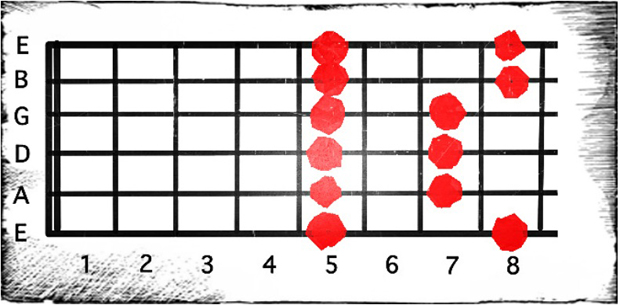
Go ahead and play through the scale a few times just to get used to the movement and refresh your memory if necessary.
All the latest guitar news, interviews, lessons, reviews, deals and more, direct to your inbox!
Now, since we’re focusing on exercises, let’s pull a couple of runs out of this mode and focus on them. Keep in mind that we’re trying to build control, so the sequence of notes will involve skipping strings, yet all those notes will be taken from this scale diagram.
Play through each pattern multiple times and increase speed as you get more comfortable.
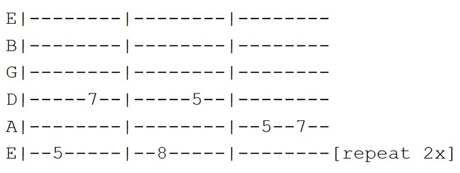

C Pentatonic Minor
The pentatonic minor mode takes some slightly more complicated shapes than the major does, depending on where we locate it on the fretboard. In this case, we’re at the third fret.
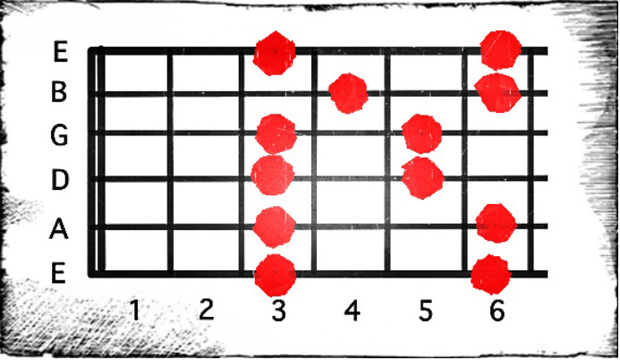
So as you can see, we’re not dealing with anything drastically different than what we were looking at before. However, if we’re looking for runs to help us build control, the string of notes that you find going from bottom to top diagonally will do quite nicely.
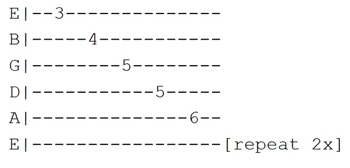
Observe that this particular run pulls you through five notes, forcing you to improvise when you run out of fingers. My advice would be to play the tab from left to right in this order: Pointer - Middle - Ring - Middle - Pinky.
When you play it this way, your middle finger will be in position to reach over your ring finger and grab that fourth note on the fifth fret, while your pinky will get a good stretch at the end.
Since this is an exercise, let’s go ahead and move the pattern around the fretboard a bit.

C Pentatonic Blues
When you take the pentatonic blues mode in the key of C and pull it on to the fifth-fret pattern, you get a somewhat complex array of notes that spans five frets. That’s nothing to sneeze at in terms of difficulty, so play through this scale a few times to get your bearings, then we’ll move on to some applicable exercises.
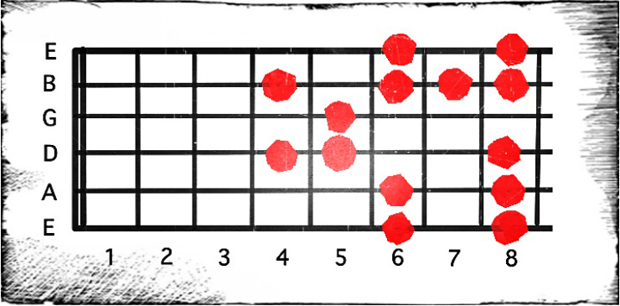
We’ll take advantage of the long wingspan of this scale and use it to stretch our fingers a bit and improve dexterity. Remember, we’re using only notes derived from this particular scale. If you’re comfortable with the pattern, give these exercises a try.
The most obvious sequence comes from the third and fifth strings, where both runs will be pretty steep stretches.
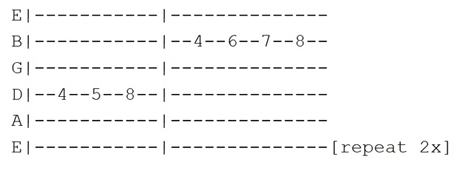
To keep the finger stretches going, we’ll pull a few arpeggio lines that span the length of the mode through all the strings.

This pattern might take some time to get used to, but it will absolutely help your dexterity and increase your control of the fretboard.
Another thing you might want to try: Once you’ve gone through all these exercises, go back and try to play through the original scale patterns. Chances are it’ll be far easier than it was the first time, as all these exercise are pulled directly from those scales.
Robert Kittleberger is the founder and editor of Guitar Chalk and Guitar Bargain. You can get in touch with him here, or via Twitter, Facebook and Google Plus.
Bobby is the founder of Guitar Chalk, and responsible for developing most of its content. He has worked with leading guitar industry companies including Sweetwater, Ultimate Guitar, Seymour Duncan, PRS, and many others.
